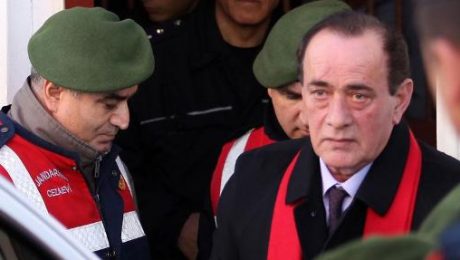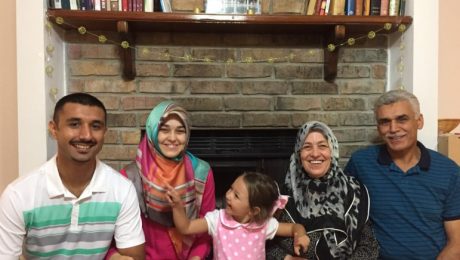Keyword: Persecution of Hizmet by Erdogan

Turkey purge victims unable to find jobs, leave country
“It’s a kind of civil death,” Kerem Altiparmak, a human rights lawyer and political science professor at Ankara University told Los Angeles Times on Wednesday when describing how the lives of thousands of people change after the July 15 coup attempt.

Turkey purge victims unable to find jobs, cannot leave country
“It’s a kind of civil death,” Kerem Altıparmak, a human rights lawyer and political science professor at Ankara University, told the Los Angeles Times to describe how the lives of thousands have changed since a July 15 coup attempt. “You cannot leave the country, you cannot find other jobs, either because of legal or de facto obstacles, because even in the private sector people do not want to employ you.”

Police insult former Zaman columnist for not supporting Erdoğan
Speaking with the Cumhuriyet daily about his last visit to journalists in Silivri Prison in İstanbul, main opposition Republican People’s Party (CHP) İstanbul deputy Mehmet Bekaroğlu said that journalists, including Bulaç, were insulted by police officers during their questioning.

Turkish mob boss to gov’t: Why bother with diplomacy? We’ll kill Gülen, his followers
Turkey’s infamous mob boss Alaattin Çakıcı implied in a letter to the Justice Ministry that his mafia network could kill Islamic scholar Fethullah Gülen in Pennsylvania and his senior followers elsewhere in the world. Çakıcı’s letter came weeks after Turkey’s controversial request that the US extradite Gülen.

Turkey should compensate abused Nigerian students
The recent unjustified arrest, detention, traumatization and subsequent release of 50 Nigerian students in Turkey by that country’s government must rank as a most unfortunate low in the Nigerian – Turkish relations. Seen in context, it constitutes an instance of unjustified victimization of innocent foreigners, out of misplaced grudge by a government that had no cause for such act of indiscretion.

Why Gulen Should Not Be Extradited
To extradite Gulen would not only imply a high chance of an unfair trial, but would also sound the death knell of a blueprint for global peace. Gulen’s ideas have all the potential for a global approach to peace-building. John L. Esposito, a professor at Georgetown University and a highly respected expert on Islam, called Gulen’s initiatives “extraordinarily unique”, and suggested it would be “wise” for other Muslim movements to emulate them.

ABA urges Obama to protest Turkey’s suppression of free speech
On September 1, the American Booksellers Association joined American publishers, authors, and librarians in a letter urging President Obama to protest the widespread suppression of free speech in Turkey during his September 4 meeting with Turkish President Tayyip Erdoğan in China.

Alleged Gülen sympathizers in prison banned from communication with outside world
The İstanbul Chief Public Prosecutor’s Office has prohibited individuals in Silivri Prison who are currently under arrest over their alleged links to the faith-based Gülen movement from communicating with the outside world during an ongoing state of emergency, the Sözcü daily reported on Monday.

Erdoğan vows to strip Gülen sympatizers off Turkish citizenship
Speaking in his Black Sea hometown of Rize on Saturday, Erdoğan repeated his unsubstantiated accusations against the Gülen movement, calling its sympathizers “terrorists.” Erdoğan urged these people under persecution to become citizens of the countries in which they are living, saying that “they will not be considered citizens of this country.”

Imprisoned Gülen followers subject to rape, nail extraction, object insertion: lawyers association
People imprisoned as part of a government crackdown on the Gülen movement are being systematically tortured in the most barbaric ways including rape, removal of nails and the insertion of objects into their anuses, according to the president of a leading lawyers association.






















